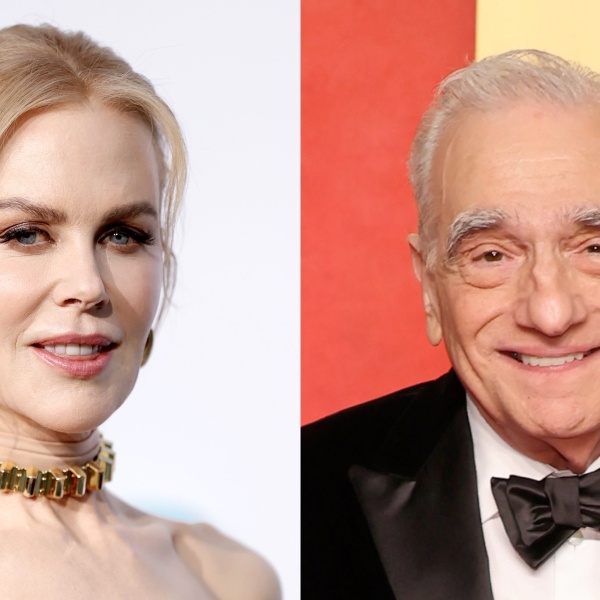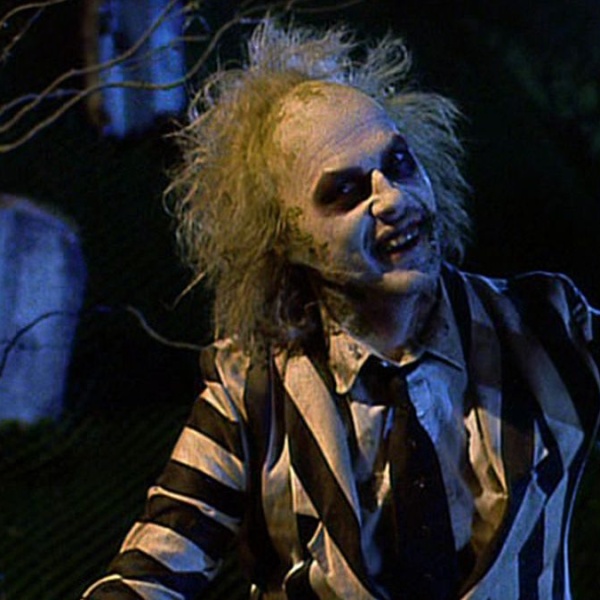
Just as news of an actor excitedly announcing that they’ve got a definitely-not-a-vanity-project album on the way is generally greeted with a reaction somewhere between mockery and outright terror, news of a musician moving into the movies is rarely a good thing. But all in all, pop megastar Madonna‘s made a better attempt than most.
Sure, there have been disasters, films like “Shanghai Surprise” and “Body of Evidence” and “Swept Away,” but there have also been hits and well-received pictures, like “Desperately Seeking Susan” and “Evita.” But more than just the occasional acting gig, she wants to direct. Things didn’t turn out so well first time out, with 2008’s “Filth and Wisdom“, but it hasn’t put her off, and things seem to bode better for her second time out. The royal drama “W.E.” has been picked up by The Weinstein Company, positioned for the Oscar season, and picked for an out-of-competition slot at Venice, where we caught the first screening this morning. Any improvement, then?

The film follows two parallel plots. The first centers on Wally (Abbie Cornish), a recently married New Yorker, desperate for a child and fascinated by Wallis Simpson, the American divorcee for whom King Edward VIII gave up the English throne. A collection of property of the Duke and Duchess is up for auction at Sotheby’s, and, as her marriage implodes, she finds herself returning to the exhibit, attracting the attentions of a security guard (Oscar Isaac). That’s all mixed in with the second strand: fragments from the life of Wallis (Andrea Riseborough), from her miscarriage, induced by her abusive first husband, to old age with her royal love (James D’Arcy).
It’s clear that Madonna identifies with Wallis, and in particular her hounding by the press, with constantly flashing cameras becoming a recurring motif in the film. It’s a self-financed passion project, years in the making, and she sets out, like Cornish’s character in the later stages of the film, to reclaim her reputation, and to show that she sacrificed just as much for love as ‘David’ (the King’s given name) did. And given the two-dimensional version of the characters displayed in “The King’s Speech” (as played by Eve Best and Guy Pearce), showing the other side of the story isn’t a bad aim. But if you set out to write and direct a film with such an ambitions, it helps if you have some capacity for writing and directing films, and on this evidence, the pop legend still doesn’t have either.
The script is the first problem. Co-written with Alek Keshishian, it’s laden with clichés and clunky exposition from the off, with some moments drawing laughs from the Venice audience. More fatally, the structure works against what’s trying to be achieved. There aren’t really any similarities between the characters in the parallel stories, so the one isn’t enlightened or embellished by the other. Furthermore, by telling Wallis’ story in a somewhat non-linear fashion, jumping around from place to place, it becomes glacially paced and uninvolving, particularly as Madonna seems to steer things away from any actual drama — we never see the moment that Wallis and David first get together, for instance.
There’s little insight into Wallis or her husband, either; the director isn’t interested in making her film anything but a hagiography, dismissing briefly and unconvincingly the troubling accusations of Nazi sympathies shared by the couple. And the script can’t even maintain an internal logic — Wally’s husband (Richard Coyle) is referred to as an emergency room doctor in one scene, and as “a shrink” in another. 
Of course, some of these problems could have been ironed out by the right director, but it seems that Madonna has, if anything, gotten worse since “Filth and Wisdom.” It’s not that she has a bad eye — the film’s handsomely shot by “The Lives of Others” DP Hagan Bodanski, in the same way that a perfume commercial is handsomely shot — it’s more that her visual approach could best be described as “throw it at the wall and see what sticks.” The camera barely sits still, stock changes from shot to shot, people walk down corridors in slow motion, all without rhyme or reason. And she can’t really block a scene either, which is most notable during a crucial declaration of love staged with David chasing Wallis around a tree. It doesn’t help that the editing is virtually nonsensical, and never misses an opportunity for a half-assed match cut; the cutter Danny Tull doesn’t have many credits beyond a 2006 documentary about, you guessed it, Madonna, and it shows.
Ms. Ciccone does have one strength, at least, and that’s casting (although it’s worth noting that Vera Farmiga and Ewan McGregor bailed not long before filming, the smartest decision either has made in a while). D’Arcy is the weakest of the leads, bland and pretty, but not leaving much of an impression otherwise. Cornish does about as well as could be expected, considering her character 1) appears to be permanently heavily sedated, 2) spends most of her time on screen window shopping, and 3) is totally unbelievable, a woman with a storyline from a Victorian costume drama rather than 1998 New York, never displaying a hint of backbone or inner life. 
Isaac, however, is a pleasure, as he often is, even in the worst projects (he also gave the best performance in “Sucker Punch“). His character gets the best lines, bringing some much needed wit to the proceedings, he seems ten times smarter than anyone else on screen, and makes a genuinely swoonsome romantic lead. Riseborough is good, as always, and should be the only person who comes out smelling of roses: playing Wallis as a sort of Dorothy Parker-type, she’s infinitely better than the material. Of which she doesn’t get enough — by the end, she’s reduced to looking a bit miserable in empty rooms, the script not really giving her anything to work with.
Oddly, for a pop megastar, the use of music is horrible (although it’s worth noting that Abel Korzeniowski‘s score is alright, though not a patch on his breakthrough a few years back on “A Single Man“). The film’s two worst scenes are both driven by pop songs, the first a baffling Benzedrine-induced freakout in a screening room, Wallis dancing to The Sex Pistols‘ “Pretty Vacant,” the latter seeing Riseborough, in old age make-up that makes her look like Gary Oldman in “Bram Stoker’s Dracula” doing the twist. Both are guaranteed to leave jaws dropping.
All in all, we can only imagine that the Weinsteins bought the film sight unseen, or that they’re hoping to make a fast buck off the back of “The King’s Speech,” because despite a couple of solid performances, the film can’t be redeemed. We’ve never looked forward to Madonna going back on tour more, if only because it means that we’ll know, for certain, that she won’t be using that time to direct another movie. [F]





